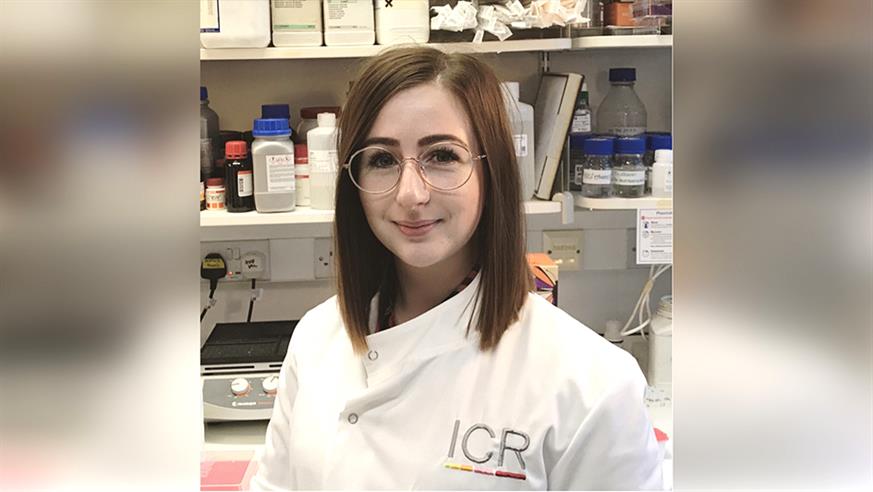
Image: Fiona Want
Recent progress in the development of new, targeted treatments is allowing many cancer patients to live longer with fewer drug related side effects, but the biggest problem we are now facing is cancer drug resistance. While a drug may be very effective initially – killing the majority of the cells in a tumour – cancer cells adapt and diversify rapidly meaning that some cells will develop resistance to a drug and will survive, leading to relapse and progression of the disease.
I am a second year PhD student in Dr Olivia Rossanese’s Target Evaluation and Molecular Therapeutics team, studying the role of APOBEC proteins.
Our third 'ICR Teaching Week' began on 1 July and all of our teaching week content — including news items, blog posts and videos — will be gathered together on one page.
A new building for new research
APOBEC proteins have a key role in the function of the immune system, helping to fend off viruses through damaging their DNA. However, recent data has shown that APOBECs can be hijacked by cancers, potentially generating mutations that speed up evolution and the emergence of drug resistance. My job is to understand how APOBEC proteins contribute to the emergence of resistance in bladder cancer and whether drugs which inhibit APOBEC can slow down evolution and delay the emergence of resistance to make our current drugs more effective for longer.
Next year I will be moving into the new Centre for Cancer Drug Discovery that will pave the way for a new era of drug discovery; predicting the course of cancer evolution and designing new drugs to target the underlying processes.
In the new centre, I will be able to collaborate even more readily with experts in evolutionary biology which will facilitate the cutting-edge experiments needed to delve deeper into APOBEC’s role. For me, it is particularly exciting to be part of a team working on what we believe is the first drug being developed to specifically target cancer’s ability to evolve. We are still raising the final £15 million needed for the new centre, and it’s been great to see media and public support for our campaign.
When I first joined the ICR in October 2017, we were at the initial planning and design stages for the new centre. Today, I can see the new site from my office window and it’s been exciting to watch the new building grow every day. I am now getting ready to move; sorting through the labs and deciding what we want to take with us!
A well-rounded student experience
I really enjoy studying at the ICR due to the opportunities there are for students. The collaborative environment and multidisciplinary approach at the ICR allows me to interact with and gain insight from researchers from a range of backgrounds and disciplines. The Learning and Organisational Development Team at the ICR put on a spread of courses to help you further develop the skills you need, both scientific and personal including careers advice, helping you to feel ready for the next step after your PhD, whatever that may be.
There is also the opportunity to get involved with the Student Committee, which we strongly encourage! We have representatives on all the main decision-making committees at the ICR to ensure that students voices are heard and all students have the best possible experience during their time at the ICR. The Committee arranges social events for the students, including fresher’s week for new students, a student away weekend and regular tea and cake afternoons, as well as a yearly Student Conference, which is the perfect time to present your work to your fellow students.
We are building a new state-of-the-art drug discovery centre to create more and better drugs for cancer patients.
I have also had the chance to be part of the larger network of Wellbeing Advisors at the ICR, promoting a healthy working environment in my role as a Student Confidant. This involves being an informal point of call for students, offering support and guidance with any concerns they have.
Next year is going to be a big year for us all, and I am looking forward to the challenges ahead and being part of the world’s first anti-evolution drug discovery programme. I think there is going to be a great synergy bringing together researchers working in drug discovery and cancer evolution in this way – ultimately helping us to transform treatments for cancer patients.